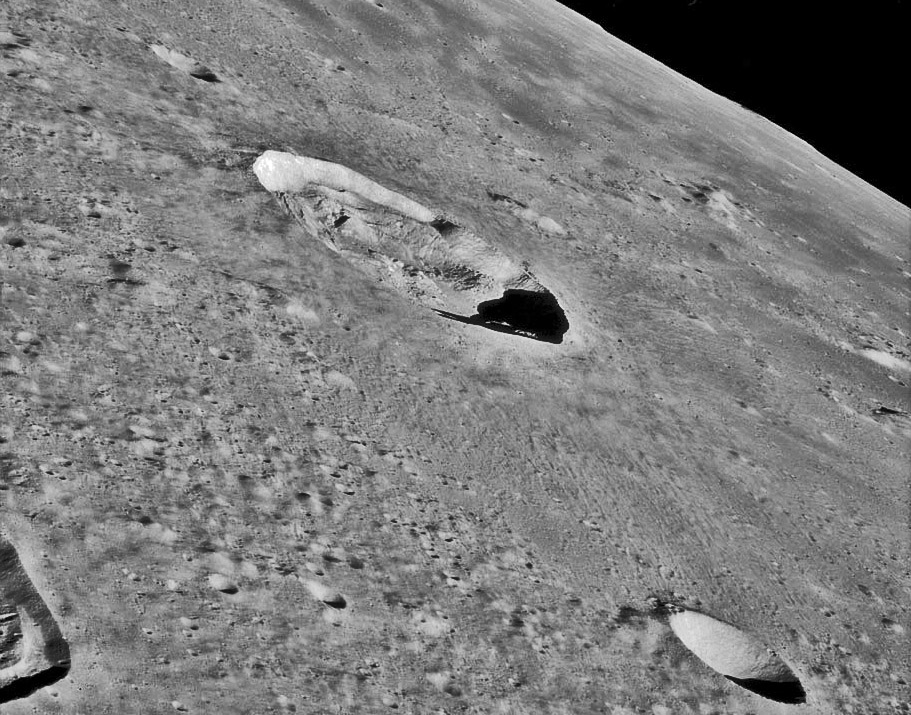
image by Apollo 12 crew (AS12-52-7745)
Some of the most dramatic lunar images ever made were shot by astronauts in orbit around the Moon. As trained observers, astronauts imaged what was scientifically interesting, and their photos often turned out to be beautiful, like this one. I have enhanced this low oblique view of Kepler to highlight the faint radial deposits in the foreground and the contrast between rays and mare in the background. With a diameter of 32 km Kepler is a small complex crater with amorphous wall slumps rather than discrete terraces. Just to the right of the central peak a small bit of flat floor – impact melt? – is visible, most of the rest of the floor is buried by the slumps. The depth of Kepler is 2.6 km, but its rim rises only about 850 m above the surroundings – craters have quite low relief compared to their diameters. One way that Kepler is extreme is the slope of its inner wall – telescopic estimates suggest it is ~42 degrees; many fresh crater walls are too steep for vehicles to traverse.
Technical Details:
November 1969. Hasselblad handheld camera.
Related Links:
Rükl chart 30
Lunar Orbiter III view
Spaceship Wes view
SUPPORT LPOD - VISIT A SPONSOR (CLICK ADS BELOW)!
COMMENTS?
Click on this icon File:PostIcon.jpg at the upper right to post a comment.



